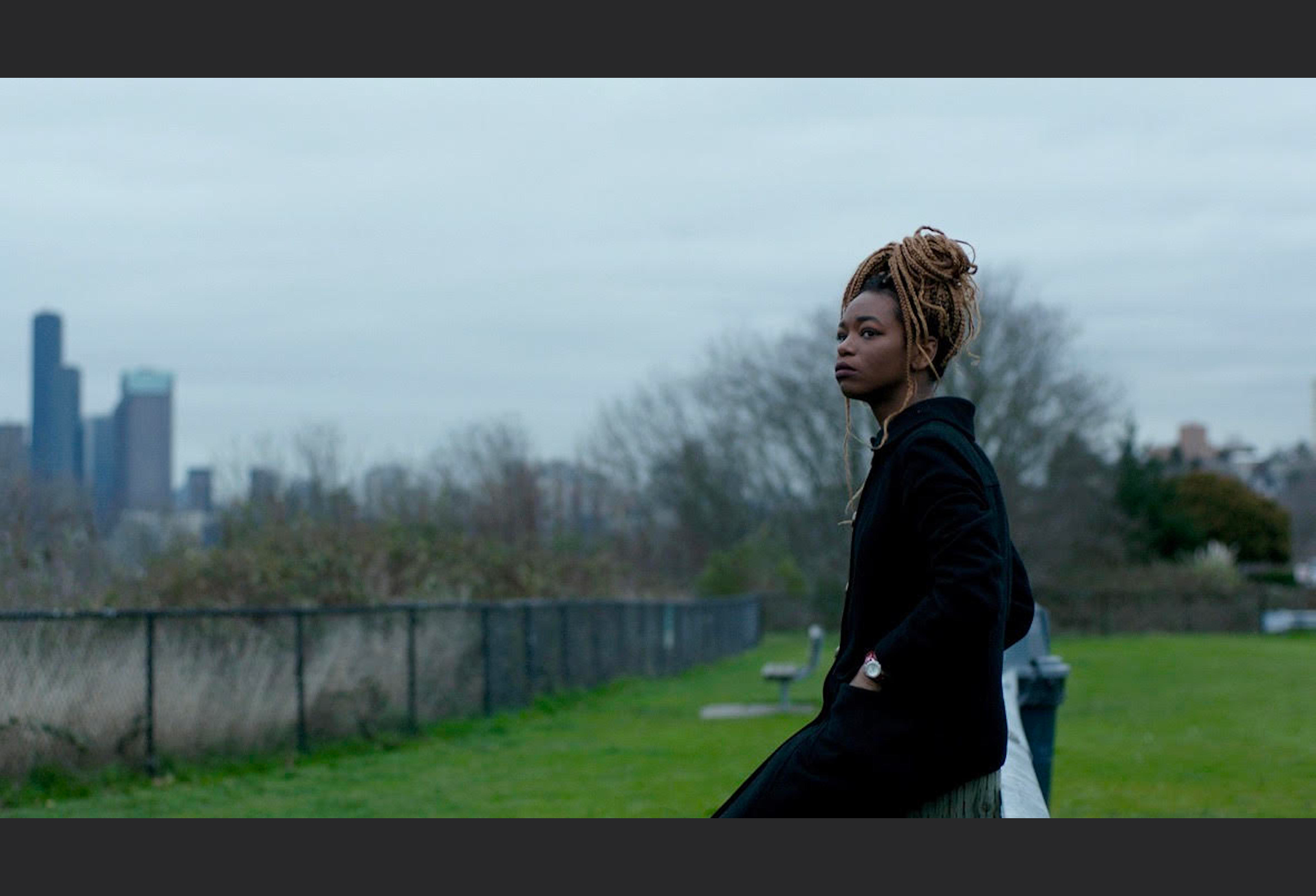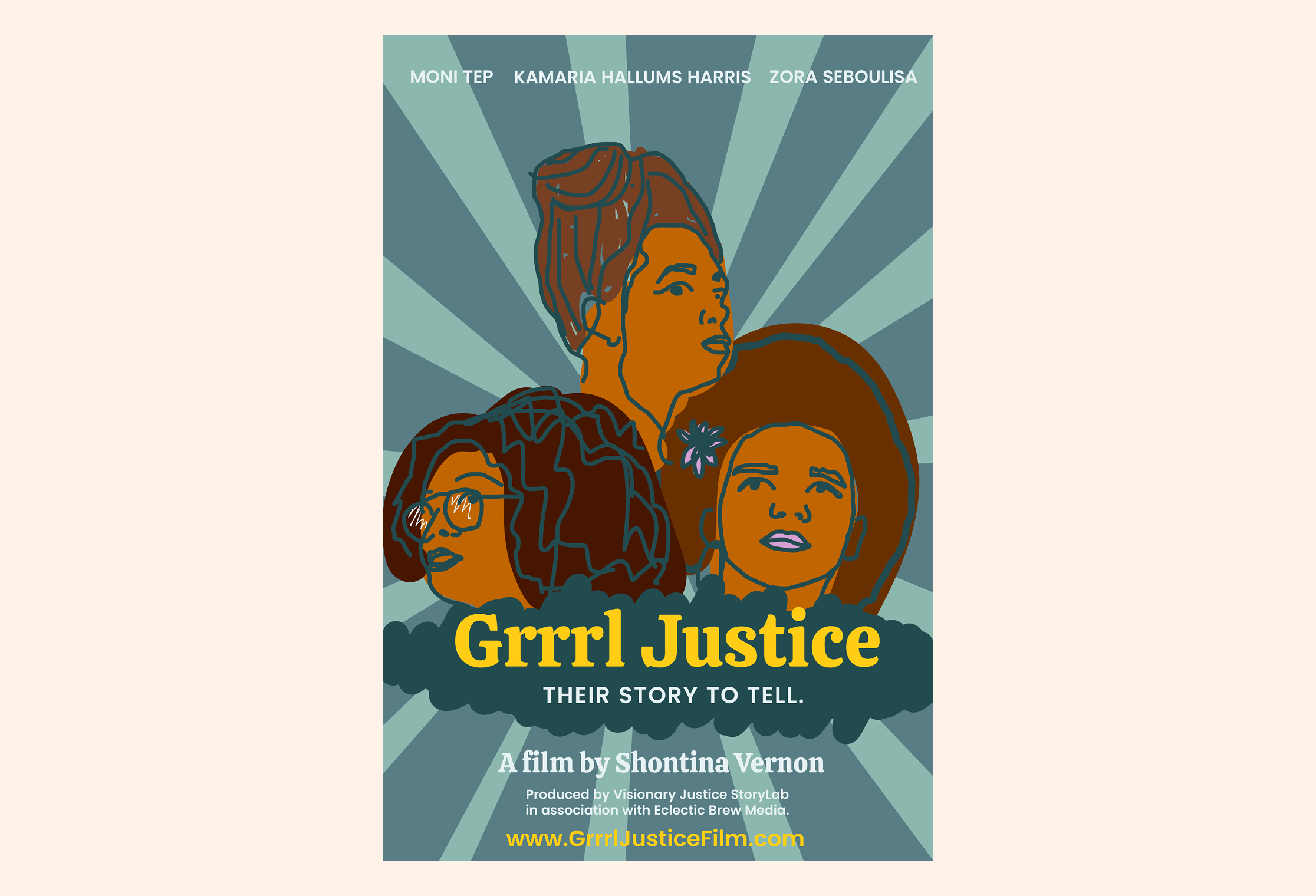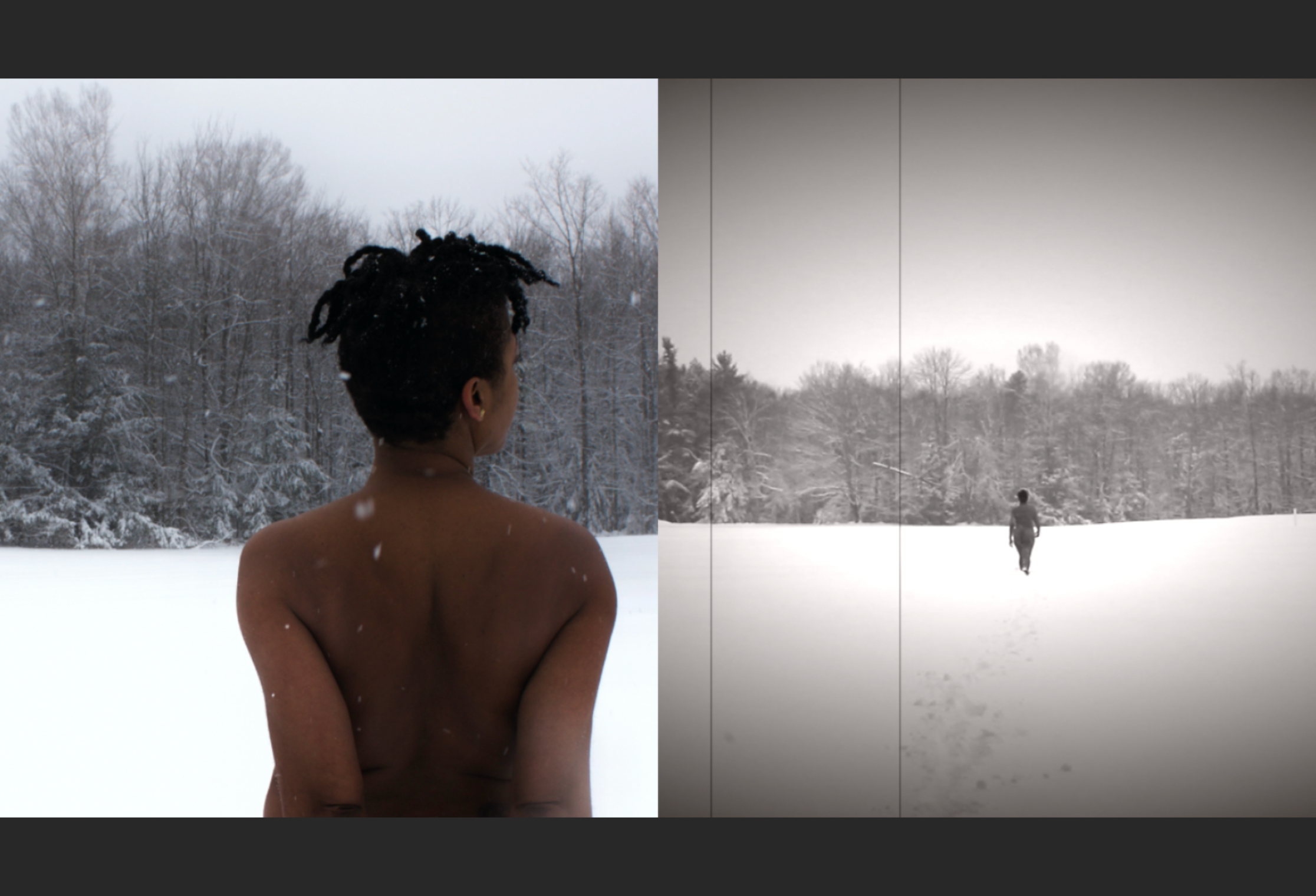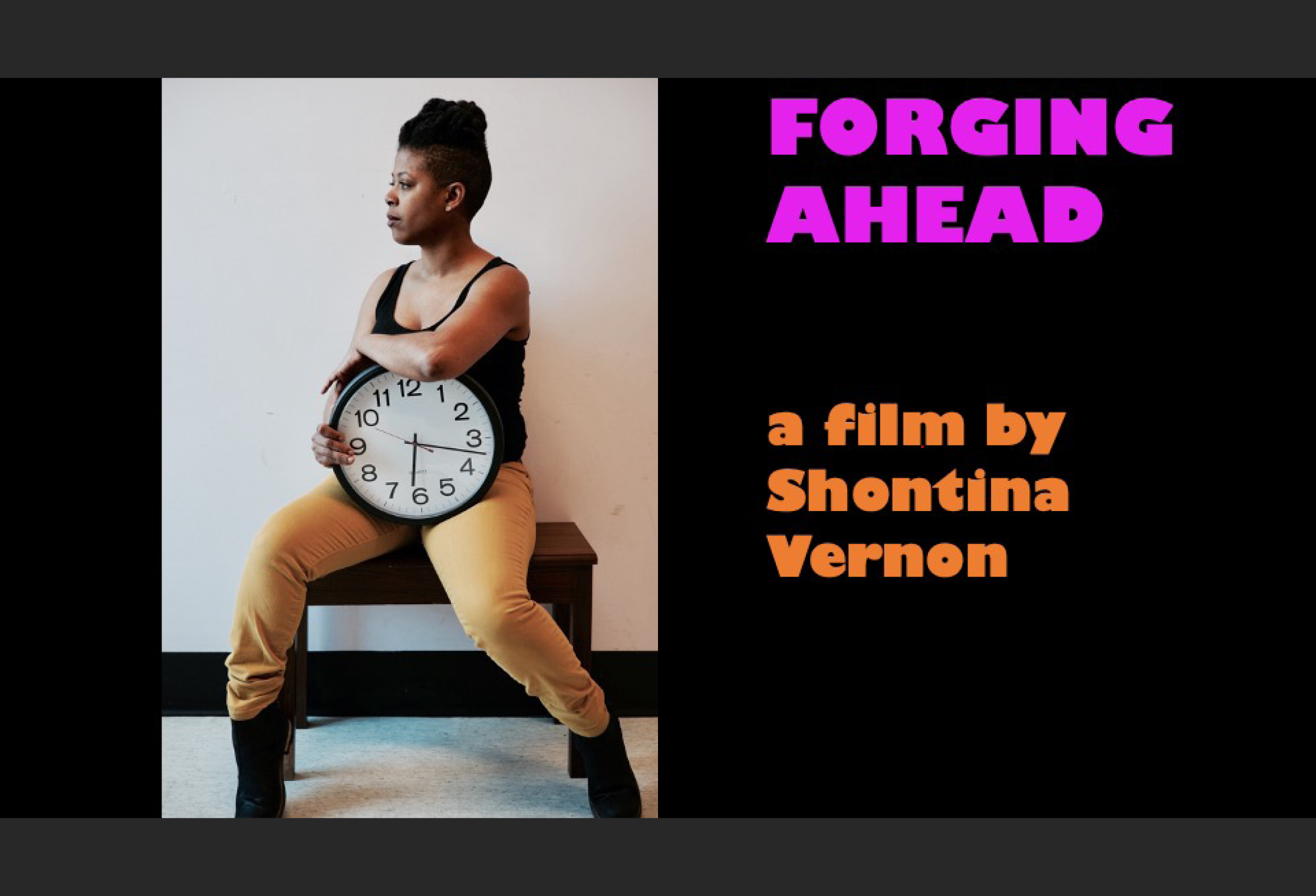Shontina Vernon is an award-winning filmmaker, theater artist, musician, and educator whose multidisciplinary practice explores memory, intergenerational trauma, and queerness.
Vernon excels in storytelling, innovating how audiences experience the personal narrative via poetic silos into the experience of people deeply impacted by the carceral system. These intimate portraits, somber scenes, and inferred actions tap into the emotional burdens carried by its characters—the shadows of real people from Vernon’s life. Acts of witness and empowerment, Vernon’s work is a testament to the power of speaking up.
Other recent works by Vernon include the single channel installation BODIES IN EXTREMITIES, a devised work titled HER BLACK BODY POLITIC, and FORGING AHEAD – an experimental solo work being developed using a hybrid form of film and theatre performance. She serves as the founding Lead Producer for Visionary Justice StoryLab, a film hub for visual storytellers whose work highlights the imagination necessary to dismantle the criminal legal system and evolve solutions to end systemic oppression in communities of color. Vernon is based in Atlanta, GA, and New York, NY.



